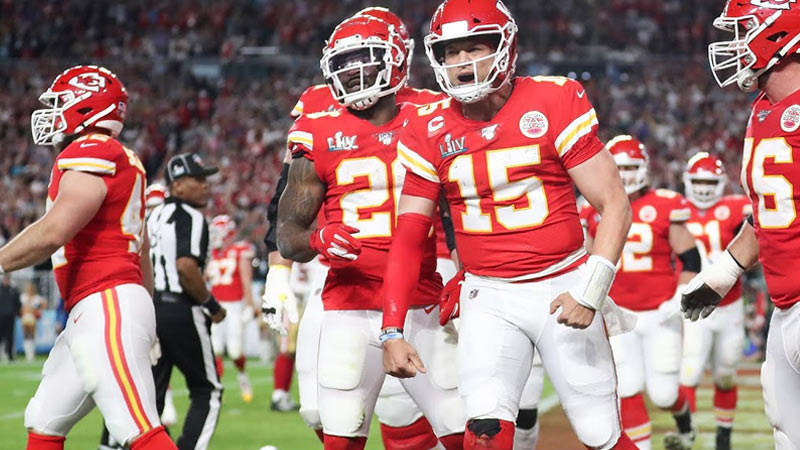Dive into the heart-pounding world of gridiron glory with our exploration of Super Bowl history.
From the inaugural clash in 1967 to recent nail-biting showdowns, each Super Bowl is a chapter in the storied saga of American sports.
Unearth the legendary moments, iconic plays, and the evolution of the game that transformed the Super Bowl into a global phenomenon.
As we journey through time, witness the triumphs of dynasties like the Patriots, the drama of historic matchups, and the sheer spectacle that defines this annual sporting extravaganza.
Join us on this gridiron adventure as we relive the highs, lows, and unforgettable moments that have shaped the Super Bowl into the grand spectacle it is today.
Super Bowl History of The Early Years: Super Bowl I to IV
We have categorized different phases of the Super Bowl based on the era. So, it should be started from the first Super Bowl event in 1967. The first phase, it’s all about the common introduction to the game and its increasing popularity.
Super Bowl I: A Modest Beginning
The inaugural Super Bowl, held on January 15, 1967, marked the merger of the NFL and the American Football League (AFL).
The Green Bay Packers, led by legendary coach Vince Lombardi, clashed with the AFL’s Kansas City Chiefs in a historic showdown.
Super Bowl II: Lombardi’s Legacy
The second edition of the Super Bowl saw the Packers secure back-to-back victories, solidifying Lombardi’s legacy as one of the greatest coaches in NFL history.
The game played on January 14, 1968, showcased the dominance of the NFL over the AFL.
Super Bowl III: Namath’s Guarantee
The 1969 Super Bowl is eternally remembered for Joe Namath’s bold guarantee of victory. The New York Jets, representing the AFL, stunned the Baltimore Colts in a game that defied all expectations.
Namath’s guarantee became an iconic moment in Super Bowl lore.
Super Bowl IV: AFL’s Redemption
The 1970 Super Bowl witnessed the Kansas City Chiefs redeeming the AFL’s honor by defeating the Minnesota Vikings.
This victory marked the last time the Super Bowl trophy was named the Vince Lombardi Trophy, as Lombardi had passed away earlier that year.
The Dominance of the 1970s: Super Bowl V to XIV
The second phase of the Super Bowl started in 1970. From the Super Bowl V tp XIV, this phase is important because this time, we get many legendary teams at this time.
Also, events like the Blunder Bowl also happened at this time. Let’s see the major historical changes at this phase of the Super Bowl:
Super Bowl V: The Colts’ Redemption
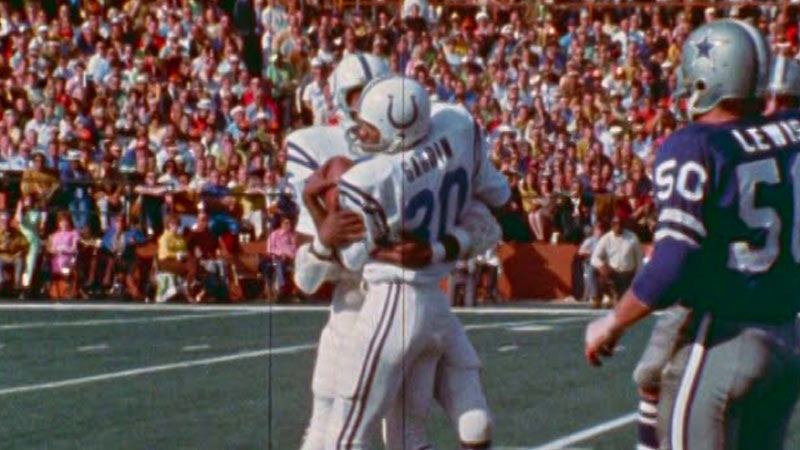
Super Bowl V, played on January 17, 1971, showcased the Baltimore Colts seeking redemption after their Super Bowl III defeat.
They edged out the Dallas Cowboys in a nail-biting contest that went down in history as the “Blunder Bowl.”
Super Bowl VI: Cowboys’ Glory
The Dallas Cowboys claimed their first Super Bowl victory in 1972, defeating the Miami Dolphins. The Cowboys’ “Doomsday Defense” and Roger Staubach’s stellar performance paved the way for their triumph.
Super Bowl VII: The Perfect Season
The 1973 Super Bowl witnessed the Miami Dolphins completing a perfect season by defeating the Washington Redskins.
This remains the only time in NFL history that a team has achieved an undefeated season, including playoffs.
Super Bowl VIII: Dolphins Repeat
The Dolphins continued their dominance in Super Bowl VIII, securing a second consecutive championship by defeating the Minnesota Vikings. This victory solidified the Dolphins as one of the NFL’s greatest dynasties.
Super Bowl IX: The Steel Curtain Rises
The Pittsburgh Steelers, led by the formidable “Steel Curtain” defense, claimed their first Super Bowl victory in 1975.
They defeated the Minnesota Vikings, setting the stage for their dynasty in the late 1970s.
Super Bowl X: Steelers vs. Cowboys Showdown
Super Bowl X, held on January 18, 1976, featured an epic clash between the Steelers and the Cowboys.
The Steelers emerged victorious in a closely contested game that showcased the intensity and drama that would define Super Bowls to come.
Super Bowl XI: Raiders’ Dominance
The Oakland Raiders showcased their dominance in Super Bowl XI, defeating the Minnesota Vikings in 1977. This victory marked the Raiders’ emergence as a powerhouse in the NFL.
Super Bowl XII: Cowboys Redemption
In a rematch of Super Bowl VI, the Dallas Cowboys sought redemption against the Denver Broncos in 1978. The Cowboys’ “Doomsday Defense” once again proved instrumental in securing victory.
Super Bowl XIII: Steelers-Cowboys Rematch
The Steelers and Cowboys met again in Super Bowl XIII, creating a historic rivalry. The Steelers emerged victorious in a thrilling game that is often regarded as one of the greatest Super Bowls of all time.
Super Bowl XIV: Steelers Triumph Again
The Steelers closed out the 1970s with another Super Bowl victory, defeating the Los Angeles Rams in 1980. This marked the end of a dominant era for the Steelers.
The 1980s: Super Bowl XV to XXIV
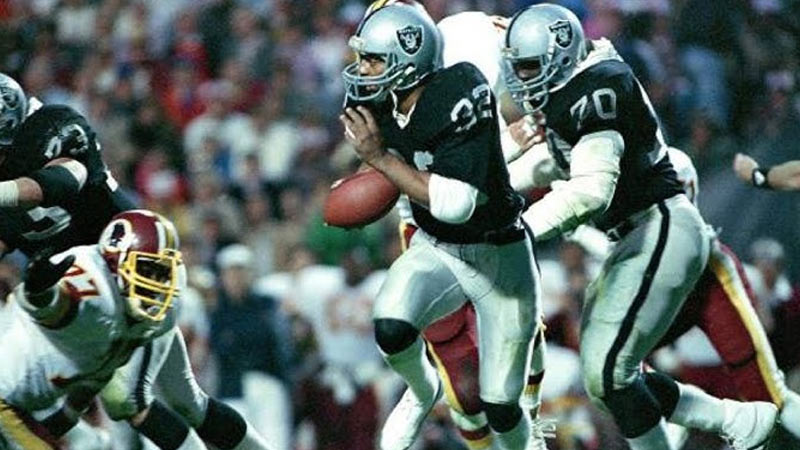
This was the time when the Super Bowl started getting the shape of today’s appearance. From Super Bowl XV to XXIV, we can categorize this phase significantly.
We encountered a lot of significant players at that time as well. Let’s see how this phase gives the shape of Today’s Super Bowl:
Super Bowl XV: Raiders Return
The Raiders returned to the Super Bowl in 1981, defeating the Philadelphia Eagles and securing their third championship.
Super Bowl XVI: 49ers Begin Dynasty
The San Francisco 49ers, led by legendary coach Bill Walsh and quarterback Joe Montana, claimed their first Super Bowl victory in 1982. This marked the beginning of a dynasty that would define the 1980s.
Super Bowl XVII: Redskins’ Redemption
The Washington Redskins sought redemption in Super Bowl XVII, defeating the Miami Dolphins in a rematch of Super Bowl VII. This victory solidified the Redskins as a force to be reckoned with in the 1980s.
Super Bowl XVIII: Raiders Dominate
The Raiders dominated Super Bowl XVIII in 1984, defeating the Washington Redskins. The game is remembered for Marcus Allen’s spectacular 74-yard touchdown run.
Super Bowl XIX: 49ers’ Air Show
Super Bowl XIX showcased a high-scoring affair between the 49ers and the Miami Dolphins.
Joe Montana’s stellar performance and the 49ers’ potent offense secured their second consecutive championship.
Super Bowl XX: Bears’ Dominance
The 1986 Super Bowl witnessed the Chicago Bears’ dominant defense, led by the legendary “46 Defense,” overwhelming the New England Patriots.
The Bears’ victory became a cultural phenomenon with the “Super Bowl Shuffle.”
Super Bowl XXI: Giants’ Comeback
The New York Giants staged a remarkable comeback in Super Bowl XXI, defeating the Denver Broncos in 1987. Quarterback Phil Simms’ MVP performance propelled the Giants to victory.
Super Bowl XXII: Redskins’ Historic Quarter
Super Bowl XXII featured a historic second quarter by the Washington Redskins, scoring 35 points and defeating the Denver Broncos in 1988.
Super Bowl XXIII: Montana’s Magic
Super Bowl XXIII, held in 1989, is remembered for Joe Montana’s game-winning drive, securing the 49ers’ victory over the Cincinnati Bengals.
This iconic moment solidified Montana’s status as one of the greatest quarterbacks in NFL history.
Super Bowl XXIV: 49ers’ Dynasty Continues
The 49ers continued their dynasty in Super Bowl XXIV, defeating the Denver Broncos in 1990. The game showcased the 49ers’ offensive prowess and marked the end of an era for the Broncos.
The 1990s: Super Bowl XXV to XXXIV
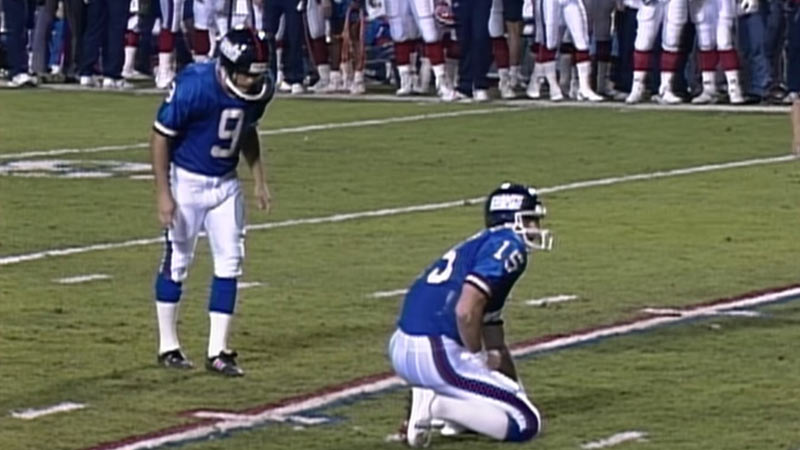
This phase is particularly significant because this phase leads the sport to the recent era. That means this phase determined the shape of the modern American sports style.
Super Bowl XXV: Giants’ Nail-Biter
Super Bowl XXV featured a nail-biting contest between the New York Giants and the Buffalo Bills in 1991.
The Giants secured victory with a last-second field goal in a game remembered for Scott Norwood’s missed potential game-winner.
Super Bowl XXVI: Bills’ Heartbreak Continues
The Buffalo Bills faced heartbreak once again in Super Bowl XXVI, losing to the Washington Redskins in 1992. The Redskins’ dominant performance denied the Bills their elusive championship.
Super Bowl XXVII: Cowboys’ Supremacy
The Dallas Cowboys began their dominance of the 1990s in Super Bowl XXVII, defeating the Buffalo Bills.
The Cowboys’ “Triplets” – Troy Aikman, Emmitt Smith, and Michael Irvin – led the way to victory.
Super Bowl XXVIII: Cowboys Repeat
The Cowboys repeated as champions in Super Bowl XXVIII, once again defeating the Buffalo Bills in 1994. The Bills faced their fourth consecutive Super Bowl loss.
Super Bowl XXIX: 49ers’ Offensive Showcase
Super Bowl XXIX showcased the 49ers’ offensive brilliance, with Steve Young throwing a record six touchdown passes to defeat the San Diego Chargers in 1995.
Super Bowl XXX: Cowboys’ Third Title
The Dallas Cowboys secured their third Super Bowl title in four years, defeating the Pittsburgh Steelers in 1996. This victory solidified the Cowboys as a dynasty of the 1990s.
Super Bowl XXXI: Packers’ Return to Glory
The Green Bay Packers, led by quarterback Brett Favre, returned to glory in Super Bowl XXXI, defeating the New England Patriots in 1997.
The Packers’ victory marked their first Super Bowl win since the Vince Lombardi era.
Super Bowl XXXII: Broncos’ Upset
Super Bowl XXXII witnessed the Denver Broncos upsetting the Green Bay Packers in 1998. The Broncos’ victory, led by quarterback John Elway, ended years of Super Bowl disappointment.
Super Bowl XXXIII: Broncos Repeat
The Broncos repeated as champions in Super Bowl XXXIII, defeating the Atlanta Falcons in 1999. John Elway’s retirement after the game added an emotional touch to the Broncos’ victory.
Super Bowl XXXIV: The Tackle
Super Bowl XXXIV, played in 2000, is forever remembered for “The Tackle.” The St. Louis Rams secured victory over the Tennessee Titans in a thrilling game that came down to the final play.
The New Millennium: Super Bowl XXXV to LIV
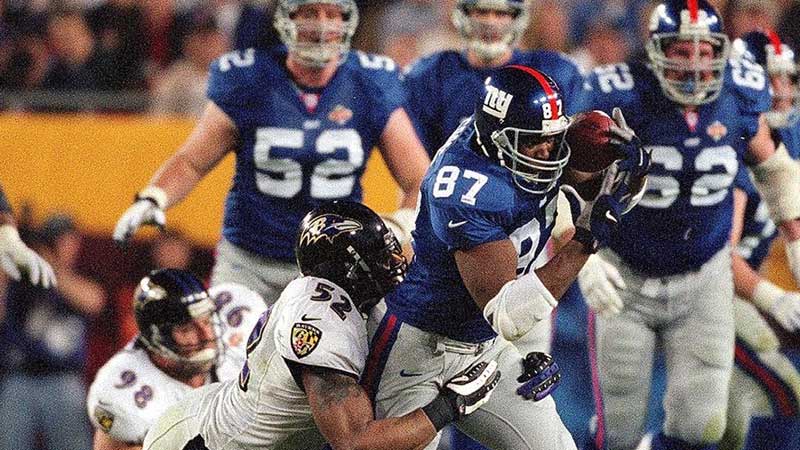
This phase is the most recent era of American football. That’s why we can call it the new millennium. Let’s see how it comes to the today’s phase from the beginning of this millennium:
Super Bowl XXXV: Ravens’ Dominant Defense
The Baltimore Ravens showcased a dominant defense in Super Bowl XXXV, defeating the New York Giants in 2001. The Ravens’ defense, led by linebacker Ray Lewis, was instrumental in their championship run.
Super Bowl XXXVI: Patriots’ Dynasty Begins
The New England Patriots, led by quarterback Tom Brady and coach Bill Belichick, began their dynasty in Super Bowl XXXVI, defeating the St. Louis Rams in 2002.
The game featured Adam Vinatieri’s game-winning field goal.
Super Bowl XXXVII: Buccaneers’ Defense Shines
The Tampa Bay Buccaneers’ defense shone in Super Bowl XXXVII, defeating the Oakland Raiders in 2003. The Buccaneers’ victory marked their first Super Bowl title in franchise history.
Super Bowl XXXVIII: Patriots Repeat
The Patriots repeated as champions in Super Bowl XXXVIII, defeating the Carolina Panthers in 2004. The game featured a thrilling fourth quarter and another game-winning field goal by Adam Vinatieri.
Super Bowl XXXIX: Patriots Three-Peat
The Patriots secured their third consecutive Super Bowl title in Super Bowl XXXIX, defeating the Philadelphia Eagles in 2005.
The game featured a rematch of Super Bowl XXXIX, with the Patriots once again emerging victorious.
Super Bowl XL: Steelers’ Triumph
The Pittsburgh Steelers triumphed in Super Bowl XL, defeating the Seattle Seahawks in 2006. The game featured controversial calls and memorable plays that sparked debate among fans.
Super Bowl XLI: Colts’ Manning Era Begins
Super Bowl XLI marked the beginning of the Peyton Manning era, as the Indianapolis Colts defeated the Chicago Bears in 2007. Manning’s performance earned him the Super Bowl MVP award.
Super Bowl XLII: Giants’ Upset
Super Bowl XLII witnessed one of the greatest upsets in NFL history, as the New York Giants defeated the previously undefeated New England Patriots in 2008. The game is remembered for David Tyree’s iconic helmet catch.
Super Bowl XLIII: Steelers’ Last-Minute Victory
The Pittsburgh Steelers secured a last-minute victory in Super Bowl XLIII, defeating the Arizona Cardinals in 2009. The game featured a dramatic game-winning touchdown catch by Santonio Holmes.
Super Bowl XLIV: Saints’ Historic Win
The New Orleans Saints secured a historic victory in Super Bowl XLIV, defeating the Indianapolis Colts in 2010. The game marked the Saints’ first-ever Super Bowl title.
Super Bowl XLV: Packers’ Title Run
The Green Bay Packers secured their fourth Super Bowl title in Super Bowl XLV, defeating the Pittsburgh Steelers in 2011. Quarterback Aaron Rodgers’ MVP performance led the way to victory.
Super Bowl XLVI: Giants-Patriots Rematch
The New York Giants and New England Patriots met again in Super Bowl XLVI, with the Giants once again emerging victorious in 2012.
Eli Manning’s MVP performance and another late-game comeback defined the contest.
Super Bowl XLVII: Ravens’ Harbaugh Bowl
Super Bowl XLVII featured a unique matchup between brothers John and Jim Harbaugh, coaching the Baltimore Ravens and San Francisco 49ers, respectively.
The Ravens secured victory in 2013, marking the end of Ray Lewis’s illustrious career.
Super Bowl XLVIII: Seahawks’ Dominance
The Seattle Seahawks showcased defensive dominance in Super Bowl XLVIII, defeating the Denver Broncos in 2014. The game is remembered for the Seahawks’ “Legion of Boom” defense.
Super Bowl XLIX: Patriots’ Thrilling Victory
Super Bowl XLIX featured a thrilling contest between the New England Patriots and Seattle Seahawks in 2015. The Patriots secured victory with a game-saving interception at the goal line.
Super Bowl 50: Broncos’ Defensive Showcase
Super Bowl 50 showcased the Denver Broncos’ dominant defense, leading them to victory over the Carolina Panthers in 2016. Peyton Manning’s final game ended with a second Super Bowl title.
Super Bowl LI: Patriots’ Historic Comeback
Super Bowl LI witnessed the New England Patriots’ historic comeback against the Atlanta Falcons in 2017. The Patriots erased a 28-3 deficit to secure their fifth Super Bowl title.
Super Bowl LII: Eagles’ Triumph
The Philadelphia Eagles triumphed in Super Bowl LII, defeating the New England Patriots in 2018. The game featured a high-scoring affair and the “Philly Special” trick play.
Super Bowl LIII: Patriots’ Defensive Battle
Super Bowl LIII was a defensive battle, with the New England Patriots defeating the Los Angeles Rams in 2019. The game marked the Patriots’ sixth Super Bowl title.
Super Bowl LIV: Chiefs’ Comeback
Super Bowl LIV featured a comeback by the Kansas City Chiefs, led by quarterback Patrick Mahomes, as they defeated the San Francisco 49ers in 2020. The Chiefs secured their first Super Bowl title in 50 years.
FAQs
When was the first Super Bowl held, and who played in it?
The first Super Bowl took place on January 15, 1967. The Green Bay Packers faced off against the Kansas City Chiefs at the Los Angeles Memorial Coliseum, with the Packers emerging victorious with a score of 35-10.
Which team has the most Super Bowl victories?
The New England Patriots hold the record for the most Super Bowl victories, with six championships. They secured their titles in 2001, 2003, 2004, 2014, 2016, and 2018.
What was the most-watched Super Bowl in history?
Super Bowl XLIX, played on February 1, 2015, between the New England Patriots and Seattle Seahawks, holds the record for the most-watched Super Bowl.
The game attracted over 114 million viewers, making it the most-watched television event in U.S. history at the time.
Who holds the record for the most points scored in a single Super Bowl game?
Super Bowl XXIX, held on January 29, 1995, saw the San Francisco 49ers defeat the San Diego Chargers with a score of 49-26. This game holds the record for the most points scored by a single team in a Super Bowl.
Has a team ever won the Super Bowl in their home stadium?
Yes, the Tampa Bay Buccaneers achieved this feat in Super Bowl LV on February 7, 2021.
They played at Raymond James Stadium in Tampa, Florida, and defeated the Kansas City Chiefs with a final score of 31-9, becoming the first team to win a Super Bowl in their home stadium.
Wrapping Up
In the tapestry of sports history, the Super Bowl stands as a shining emblem of athleticism, spectacle, and cultural significance.
From the frozen tundra of the inaugural game to the dazzling halftime extravaganzas, the Super Bowl has woven itself into the fabric of American tradition.
As we reflect on the triumphs, heartbreaks, and unforgettable plays, it’s evident that the Super Bowl is more than a game; it’s a cultural touchstone, a showcase of excellence, and a source of enduring memories.
With each passing year, the Super Bowl’s legacy grows, leaving indelible imprints on the collective consciousness of sports enthusiasts worldwide.
As we eagerly anticipate future showdowns, we carry with us the echoes of touchdowns and triumphs that have defined this remarkable journey through Super Bowl history.

